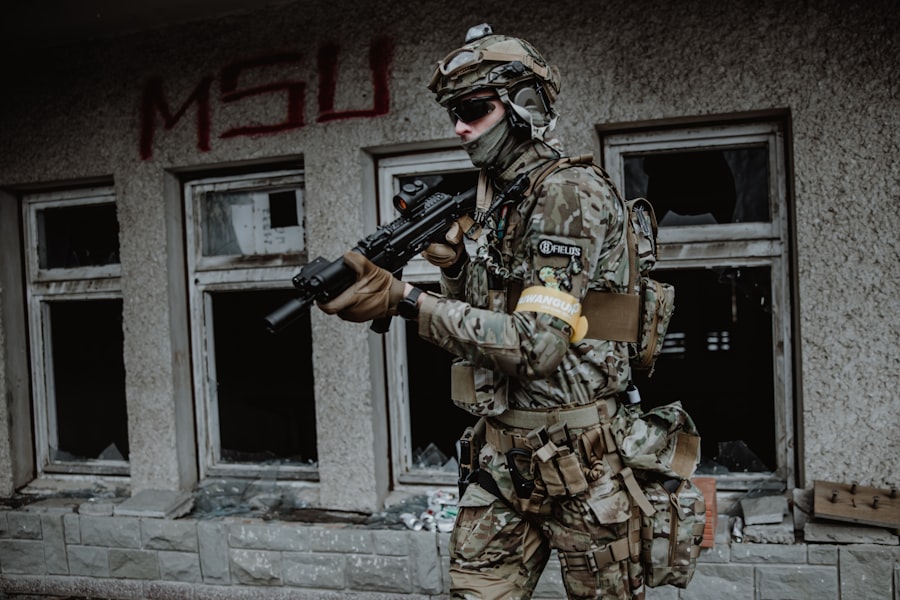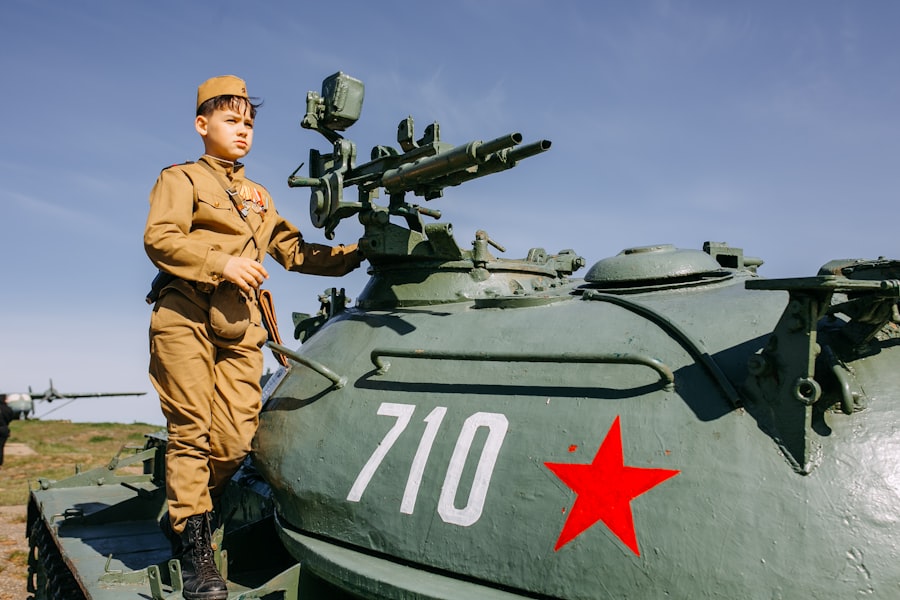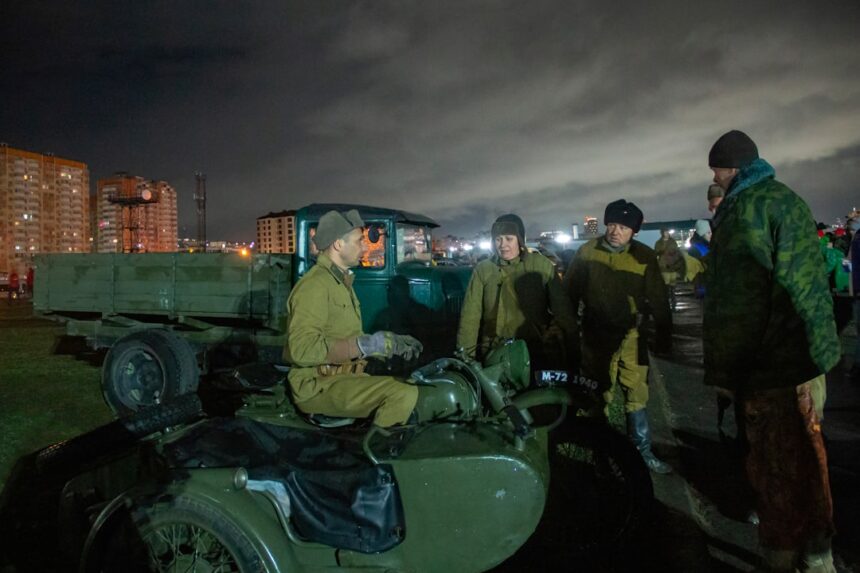Corruption within the Russian military has emerged as a significant issue, casting a long shadow over its operational effectiveness and overall integrity. This pervasive problem is not merely a matter of financial misconduct; it encompasses a wide range of unethical behaviors that undermine the very foundations of military discipline and effectiveness. From embezzlement of funds to bribery and nepotism, corruption has infiltrated various levels of the military hierarchy, creating an environment where loyalty to personal gain often supersedes commitment to duty and country.
The implications of such corruption extend beyond individual misconduct, affecting the morale, trust, and operational readiness of the armed forces.
The collapse of the Soviet Union left a vacuum that was quickly filled by opportunistic individuals seeking to exploit the chaos for personal gain.
Over the years, this culture of corruption has become entrenched, making it increasingly difficult to eradicate. As the military grapples with these challenges, the consequences are felt not only by those within its ranks but also by the nation as a whole, raising questions about national security and the efficacy of military operations.
Key Takeaways
- Corruption in the Russian military is a pervasive issue that affects various aspects of the armed forces.
- The effects of corruption on military morale are significant, leading to a lack of trust in leadership and a decrease in discipline and order.
- Corruption also impacts combat readiness and contributes to unequal treatment and favoritism within the military.
- Economic hardships and low morale further exacerbate the challenges of recruitment and retention in the military.
- Efforts to combat corruption in the Russian military are ongoing, but the influence of corruption on military culture remains a concern for the future.
The Effects of Corruption on Military Morale
The impact of corruption on military morale is profound and multifaceted. When soldiers perceive that their leaders are engaged in corrupt practices, it breeds disillusionment and cynicism. This erosion of trust can lead to a significant decline in motivation among personnel, who may feel that their sacrifices are undervalued in an environment rife with dishonesty.
The sense of betrayal felt by those who serve can be debilitating, as they witness their superiors prioritizing personal enrichment over the welfare of their troops and the mission at hand. Moreover, corruption can create a toxic atmosphere where meritocracy is undermined. Soldiers who work hard and adhere to ethical standards may find themselves overlooked for promotions or opportunities in favor of those who engage in corrupt practices.
This not only diminishes individual morale but also fosters resentment among troops, leading to a fragmented unit cohesion. As morale plummets, the overall effectiveness of the military is compromised, as soldiers become less willing to go above and beyond for a leadership they no longer respect.
Lack of Trust in Leadership

A critical consequence of corruption within the Russian military is the pervasive lack of trust in leadership. When leaders are perceived as corrupt, their authority is called into question, leading to a breakdown in the chain of command. Soldiers may become reluctant to follow orders or respect directives from superiors who they believe are acting in self-interest rather than for the good of the unit or country.
This erosion of trust can have dire implications during times of crisis when decisive action and unity are paramount. The lack of trust extends beyond individual leaders to encompass the entire military establishment. Soldiers may begin to view their superiors as part of a corrupt system rather than as guardians of national security.
This perception can lead to widespread skepticism about military objectives and strategies, further complicating efforts to maintain discipline and operational effectiveness. In an environment where trust is scarce, communication falters, and collaboration diminishes, ultimately jeopardizing mission success.
Impact on Combat Readiness
| Category | Metric | Impact |
|---|---|---|
| Training | Training hours completed | Directly impacts combat readiness |
| Maintenance | Equipment downtime | Can affect combat readiness if not managed efficiently |
| Personnel | Deployment readiness rate | High rate indicates strong combat readiness |
| Supply Chain | Inventory levels | Low levels can hinder combat readiness |
Corruption has a direct and detrimental impact on combat readiness within the Russian military. Resources that should be allocated for training, equipment maintenance, and operational preparedness are often siphoned off through corrupt practices. This misallocation not only hampers the ability of troops to perform effectively but also compromises their safety during missions.
Soldiers may find themselves ill-equipped or inadequately trained, leading to increased vulnerability on the battlefield. Furthermore, when funds are misappropriated, it becomes challenging to sustain a high level of operational readiness. Units may face delays in receiving necessary supplies or equipment upgrades due to financial mismanagement or diversion of resources for personal gain.
As a result, combat units may struggle to maintain their readiness levels, which can have catastrophic consequences during conflicts or military engagements. The inability to respond effectively to threats not only endangers soldiers’ lives but also undermines national security.
Decrease in Discipline and Order
The presence of corruption within the ranks contributes significantly to a decrease in discipline and order among military personnel. When soldiers observe corrupt behavior going unpunished or even rewarded, it sends a message that adherence to rules and regulations is optional. This erosion of discipline can manifest in various ways, including increased instances of insubordination, neglect of duties, and a general decline in professionalism.
As discipline wanes, the military’s ability to function cohesively is compromised. Units may become fragmented as individuals prioritize personal interests over collective goals. The breakdown of order can lead to chaotic situations during training exercises or operations, where adherence to protocols is crucial for success.
In such an environment, the risk of accidents or failures escalates, further jeopardizing both personnel safety and mission objectives.
Unequal Treatment and Favoritism

Corruption often breeds an environment characterized by unequal treatment and favoritism within the military ranks. When promotions and assignments are influenced by personal connections or bribery rather than merit, it creates a sense of injustice among soldiers. Those who work diligently may find themselves overlooked in favor of individuals who engage in corrupt practices, leading to widespread dissatisfaction and resentment.
Soldiers may feel demotivated when they perceive that their hard work goes unrecognized while others benefit from unethical behavior. Such disparities can foster divisions within units, undermining teamwork and collaboration essential for effective military operations.
As trust erodes and resentment builds, the overall effectiveness of the military is compromised.
Economic Hardships and Low Morale
Economic hardships faced by soldiers can exacerbate the effects of corruption on morale within the Russian military. Many service members struggle with low pay and inadequate living conditions, which can lead them to seek additional income through corrupt means. This desperation can create a vicious cycle where financial struggles drive individuals toward unethical behavior, further entrenching corruption within the ranks.
As soldiers grapple with economic challenges, their focus shifts from fulfilling their duties to addressing personal financial concerns. This shift in priorities can lead to decreased commitment to military objectives and a decline in overall morale. When soldiers feel undervalued and financially strained, their willingness to endure hardships for their country diminishes, ultimately impacting operational effectiveness.
Recruitment and Retention Challenges
The pervasive culture of corruption poses significant challenges for recruitment and retention within the Russian military. Potential recruits may be deterred by negative perceptions surrounding corruption and misconduct within the ranks. The fear of entering an environment where unethical behavior is tolerated can dissuade talented individuals from pursuing a career in the armed forces.
Moreover, existing personnel may choose to leave the military due to disillusionment with leadership and concerns about corruption. High turnover rates can disrupt unit cohesion and create gaps in experience that are difficult to fill. As seasoned veterans depart, the military risks losing valuable knowledge and skills essential for effective operations.
The challenges associated with recruitment and retention further exacerbate the issues stemming from corruption, creating a cycle that is difficult to break.
Corruption’s Influence on Military Culture
Corruption has a profound influence on military culture within the Russian armed forces. When unethical behavior becomes normalized, it shapes attitudes and behaviors among personnel at all levels. A culture that tolerates corruption fosters an environment where integrity is compromised, and ethical standards are diminished.
This shift in culture can have lasting effects on how soldiers perceive their roles and responsibilities. As corruption becomes ingrained in military culture, it can lead to a sense of fatalism among personnel who feel powerless to effect change. Soldiers may come to accept corrupt practices as an inevitable part of military life, further entrenching unethical behavior within the ranks.
This cultural shift not only impacts individual conduct but also shapes how units operate collectively, ultimately undermining the effectiveness and integrity of the entire military establishment.
Efforts to Combat Corruption in the Russian Military
Recognizing the detrimental effects of corruption on its armed forces, there have been efforts within the Russian military to combat this pervasive issue. Initiatives aimed at increasing transparency and accountability have been introduced in an attempt to restore trust among personnel and improve overall morale. These efforts include implementing stricter oversight mechanisms for financial transactions and promoting ethical conduct among leaders.
However, challenges remain in effectively addressing corruption within such a deeply entrenched system. Resistance from those benefiting from corrupt practices can hinder progress, making it difficult to implement meaningful reforms. Additionally, cultural attitudes toward corruption must shift for any efforts at reform to be successful.
While steps have been taken toward combating corruption, sustained commitment from leadership at all levels will be essential for creating lasting change within the Russian military.
Conclusion and Future Outlook
The issue of corruption within the Russian military presents significant challenges that extend beyond individual misconduct; it threatens national security and operational effectiveness as well. The erosion of trust in leadership, declining morale among personnel, and compromised combat readiness are just a few consequences that stem from this pervasive problem. As efforts continue to combat corruption within the ranks, it is crucial for leadership to prioritize transparency and accountability while fostering a culture that values integrity.
Looking ahead, addressing corruption will require a concerted effort from all levels of military leadership as well as support from broader societal institutions committed to promoting ethical behavior. The future effectiveness of the Russian military hinges on its ability to confront these challenges head-on and cultivate an environment where dedication to duty prevails over personal gain. Only through sustained reform efforts can the Russian military hope to restore its integrity and ensure its readiness for future challenges on both domestic and international fronts.
In recent years, the Russian military has faced significant challenges related to morale and corruption, issues that have been exacerbated by ongoing conflicts and internal inefficiencies. A detailed examination of these problems can be found in an article on In The War Room, which delves into the systemic issues plaguing the Russian armed forces. The article highlights how corruption within the ranks not only undermines operational effectiveness but also erodes trust among personnel, leading to a decline in morale. This comprehensive analysis provides valuable insights into the complexities of maintaining a robust and ethical military force in the face of such pervasive challenges.
WATCH NOW! 🎖️ Plot Twist: Russia’s Military Is Being Eaten Alive By Its Own Corruption
FAQs
What is the current state of Russian military morale?
The current state of Russian military morale is a topic of debate and speculation. While some reports suggest that morale is high due to increased military spending and modernization efforts, others point to issues such as low pay, poor living conditions, and high casualty rates as factors contributing to low morale.
What are some factors contributing to low morale in the Russian military?
Some factors contributing to low morale in the Russian military include low pay, poor living conditions, high casualty rates, lack of proper equipment and resources, and a perceived lack of support from the government.
How prevalent is corruption in the Russian military?
Corruption in the Russian military is reported to be prevalent, with issues such as embezzlement, bribery, and kickbacks being common. This has led to a lack of trust in the military leadership and a negative impact on morale and effectiveness.
What efforts are being made to address corruption in the Russian military?
Efforts to address corruption in the Russian military include anti-corruption campaigns, increased oversight and accountability measures, and reforms aimed at improving transparency and reducing opportunities for corrupt practices. However, progress in this area remains a topic of debate and skepticism.




